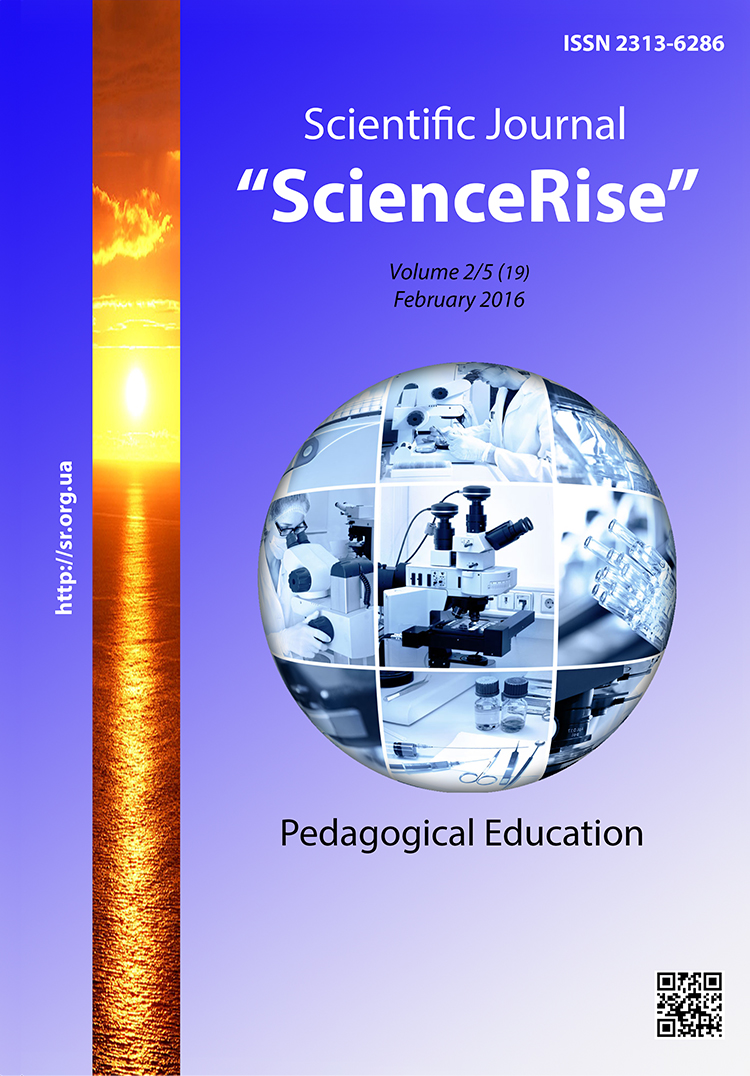Вимоги до професійних компетентностей викладача в контексті полікультурної освіти
DOI:
https://doi.org/10.15587/2313-8416.2016.60889Słowa kluczowe:
полікультурнiсть, мультикультурний, етнічно гетерогенний, поліетнічний, компетентність, європейська ідентичність, селективність, парадигмаAbstrakt
Стаття містить виявлення соціальних протиріч та основних проблем учасників міжкультурного спілкування. Надано визначення полікультурності як принципу освіти у мультикультурному суспільстві. Визначено пріоритети європейської освіти. Описано вимоги до компетентностей викладача. Надано визначення ознак полікультурної освіти (за Ф. Дервіном). Виявлено проблеми, які стоять перед шкільною системою у світлі впровадження полікультурності у процес навчання. Описано прийоми, що сприяють впровадженню полікультурності у систему підготовки вчителів
Bibliografia
Banks, J. (1995). A Handbook of Research on Multicultural Education. New York: MacMillan Publishing.
Nieto, S. (2010). Affirming diversity: the sociopolitical context of multicultural education. New York: Pearson Publishing.
Dervin, F. (2014). Towards post-intercultural teacher education: analysing “extreme” intercultural dialogue to reconstruct interculturality. European Journal of Teacher Education, 38 (1), 71–86. doi: 10.1080/02619768.2014.902441
Aydin, K. (2013). British Multiculturalism: Diversity Issues and Development of Multicultural Education in Britain. Chap. 3. Academia, 58–91. Available at: https://www.academia.edu/5445586/British_Multiculturalism_Diversity_Issues_and_Development_of_Multicultural_Education_in_Britain
Luchtenberg, S. (2005). Multicultural Education: Challenges and Responses. JSSE, 1, 31–55. doi: 10.4119/UNIBI/jsse-v4-i1-978
Trepptke, C. Multicultural Approaches in Education: A German Experience Multiculturalism in Early Childhood Programs. Turkish Children and Mothers Project (ECAP Collaborative). Available at: http://ecap.crc.illinois.edu/eecearchive/books/multicul/trepptke.html
Aydin, H., Tonbuloğlu, B. (2014). Graduate students perceptions on multicultural education: a qualitative case study. Journal of Educational Research, 14 (57). doi: 10.14689/ejer.2014.57.3
Pukhovs'ka, L. P. (2000). Osobystisna model' pidhotovky vykladachiv na zakhodi [Personality model of teachers’ training in the West]. Naukovi praci. Mykolaiv: Vyd-vo MF NaUKMA, 7, 20–22.
Miliutina, O. K. (2008). Polikul'turna osvita shkoliariv u Velykobrytanii [Polycultural education of schoolchildren in Great Britain]. Zhytomyr, 260.
Frolova, O. V. (2013). Etnichni stereotypy iak chynnyk strukturuvannia komunikatyvnoho polia osobystosti [Ehtnical stereotypes as a factor of structuralizing the communicative personality scope]. Kyiv, 208.
Arakelian, V. O. (2001). Polykul'turnoe obrazovanye: suschnost' y soderzhanye [Polycultural education: essence and contents]. Moscow, 148.
Education and Training 2020 (2010). ETUCE Circular 1/2010. Brussel, 11. Available at: http://www.csee-etuce.org/images/attachments/ETUCECircular2010EN.pdf
Perotti, A. (1994). The case for intercultural education. Council of Europe press, 158.
Sinclair, M. (2004). Learning to live together: Building skills, Values and Attitudes for the twenty-first century. UNESCO: International Bureau of Education, Geneva, 167. Available at: http://s3.amazonaws.com/inee-assets/resources/doc_1_48_Learning_to_Live_Together.pdf
Sierens, S. (Ed.) (2000). Us, Them, Ours. Points for attention in designing interculturallly sound learning materials. Centre for intercultural education. Ghent, Belgium.
Ozbarlas, Y. (2008). Perspective on Multicultural Education: Case Studies of a German and an American Female Minority Teacher. Dissertation, Georgia State University. Available at: http://scholarworks.gsu.edu/msit_diss/34
##submission.downloads##
Opublikowane
Numer
Dział
Licencja
Copyright (c) 2016 Інна Володимирівна Ковалинська

Utwór dostępny jest na licencji Creative Commons Uznanie autorstwa 4.0 Międzynarodowe.
Our journal abides by the Creative Commons CC BY copyright rights and permissions for open access journals.
Authors, who are published in this journal, agree to the following conditions:
1. The authors reserve the right to authorship of the work and pass the first publication right of this work to the journal under the terms of a Creative Commons CC BY, which allows others to freely distribute the published research with the obligatory reference to the authors of the original work and the first publication of the work in this journal.
2. The authors have the right to conclude separate supplement agreements that relate to non-exclusive work distribution in the form in which it has been published by the journal (for example, to upload the work to the online storage of the journal or publish it as part of a monograph), provided that the reference to the first publication of the work in this journal is included.

